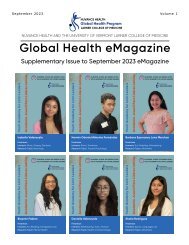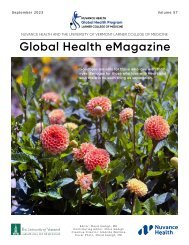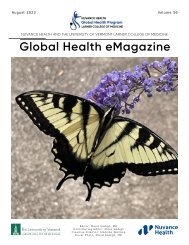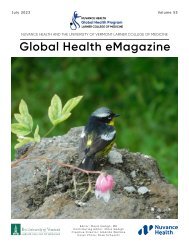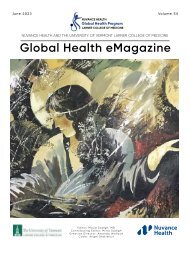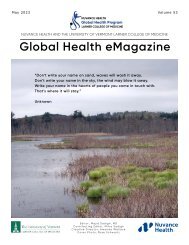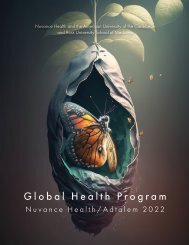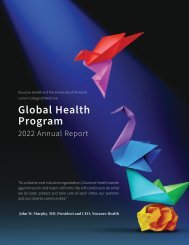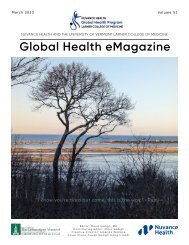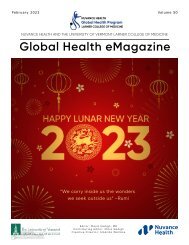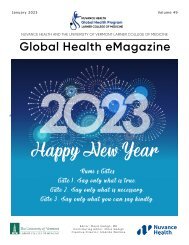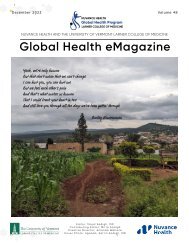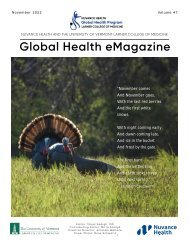eMagazine April 2023
You also want an ePaper? Increase the reach of your titles
YUMPU automatically turns print PDFs into web optimized ePapers that Google loves.
OUR PEOPLE,<br />
OUR MISSION<br />
Article of the Month<br />
Global Health<br />
<strong>eMagazine</strong><br />
<strong>April</strong> <strong>2023</strong><br />
Perspectives<br />
Reports from the Field<br />
Highlights<br />
Reflections<br />
Nursing Division<br />
Women’s Health Education<br />
Hispanic/Latinx Community<br />
Ugandan Voices<br />
Innovation and Technology<br />
Our Beautiful Planet<br />
Art to Remind Us of<br />
Who We Can Be<br />
Video of the Month<br />
Announcement<br />
New Publications<br />
Article of the Month<br />
Welcome<br />
Among the Letters<br />
Congratulations<br />
Photo News<br />
Calendar<br />
Global Health Family<br />
Resources<br />
Previous Issues of<br />
the <strong>eMagazine</strong><br />
A brief history of colonisation in global healthDespite being given several names<br />
throughout his-tory, from its roots in colonial medicine [1] to tropi-cal medicine,<br />
international health, and even planetary health, the field of global health<br />
continues to uphold colonialist structures. From its use as a scientific rationale<br />
for assigning racial superiority or inferiority to its restrictions on the movement<br />
of indigenous people in the name of infection control, the exploita-tion of<br />
local remedies, to the injustices against people of color in the name of medical<br />
progress, stories of inequity have long been woven into the history of global<br />
health [2]. Every act of colonialism, be it enlisting of indigenous populations into<br />
hard labor, usurping of ancient culture and faith practices, or the imposition<br />
of divisive borders, has inevitably led to negative health outcomes [3].French<br />
colonial strategist Herbert Lyautey described medicine as the ‘most effective<br />
of our agents for penetration and pacification’ [4]. History demonstrates that<br />
colonial powers promoted medical research and advancements when diseases<br />
affected their own people, and only did so for locals when in the colonies’ best<br />
interests, such as the case of malaria control in the construction of the Panama<br />
Canal [5]. In fact, in the United States, there are many examples of medical<br />
advancements that relied on exploitation of vulnerable populations. The<br />
vesicovaginal fistula surgery was crafted by Marion Sims who became known<br />
as the ‘father of modern gynecology’ without any credit given to the enslaved<br />
black women who were operated on without anesthesia [6]. The devel-opment<br />
of chemotherapy by Cornelius Rhoads earned him countless accolades while<br />
the 60,000 US soldiers of African, Japanese, and Puerto Rican des-cent who<br />
suffered lifelong consequences of his mus-tard gas experiments went unnamed.<br />
33<br />
Article of the Month continued on next page >>




